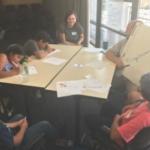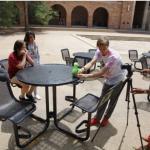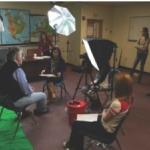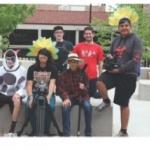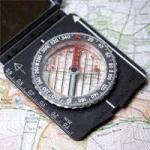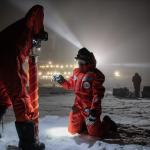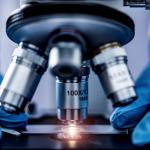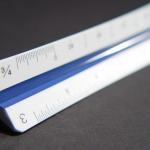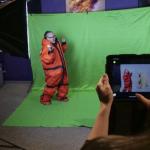Lesson Plans & Activities
Filmmaking: Pre-Production
This is the first part of a 3-part unit on the filmmaking process for both formal and informal education settings.
This lesson has students explore science content, decide on the topic for their film, and do all the preparatory work before filming begins.
Sharing Science with Film: A Guide to Student Productions
The examples and lesson plans provided in the educator guide emphasize scientific film topics; however, the methods shared throughout Sharing Science With Film: A Guide to Student Productions are applicable to films around all topics and genres.
Sharing Science With Film: A Guide to Student Productions is a guide for educators, and provides a how-to manual for instructing youth on how to produce short films.

Filmmaking: Production
This is the second part of a 3-part unit on the filmmaking process for both formal and informal education settings.
In this lesson, students film interviews with content experts as well as additional B-roll footage, and film mentors help students find existing footage and media to supplement their films.
Filmmaking: Post-production
This is the third part of a 3-part unit on the filmmaking process for both formal and informal education settings.
This lesson teaches students about editing films and respecting licensed materials, while also ensuring they receive the support they need to ensure completion of their films.
Creating a Compass from a Magnet
Project EXTREMES lessons were intended to stand alone, but this lesson can be included in a unit on the Earth’s interior.
In this lesson, students create a compass and apply their reasoning about magnetism to how compasses work to help us navigate around the globe while utilizing the Earth’s magnetic field.

Exploring the New and Old Arctic
This unit consists of 6 lessons, each tied to NGSS nature of science understandings
In this MS/HS unit, students compare and contrast Arctic expeditions of the past (1893-1896 Fram expedition) and the present (2019-2020 MOSAiC expedition) to prepare for the Arctic of the future.Science or Pseudoscience?
Project EXTREMES lessons were written to be stand alone lessons but can be incorporated into a larger unit.
This lesson introduces students to the nature of science and how to evaluate evidence to determine whether they are engaging in science or pseudoscience.

In Support of Basic Science
Project EXTREMES lessons were intended to stand alone, and this lesson can be implemented at any time when deemed appropriate, such as the onset of a scientific investigation.
This activity will challenge students thinking about the nature of science and highlight the importance of both basic and applied scientific research.

Data Analysis: Introduction to Measurement, Error, and Outliers
Project EXTREMES lessons were written to be stand alone lessons but can be incorporated into a larger unit; this lesson can be used to support learners who are new to data collection and analysis.
In this lesson, students measure and compare the rate of a falling object (a penny) at different heights to learn about statistical error.

